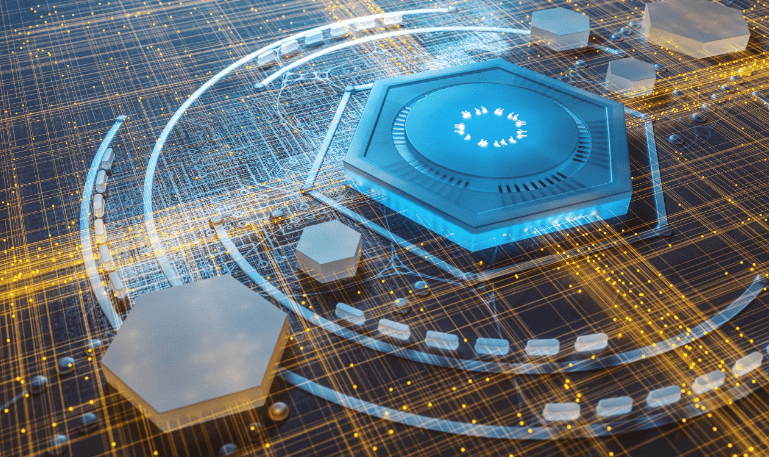Quantum computing is an emerging and rapidly developing technology ecosystem that has shown promise in delivering potentially disruptive computing capabilities, highlights Quantum Computing.
The rapid adoption of technologies such as artificial intelligence, 3D imaging and the Internet of Things (IoT) have served to exponentially increase data generation, driving demand for high-performance computing.
Estimates on the size of this industry vary, but according to Grand View Research, the high-performance computing market was valued at $39.1 billion in 2019 and is expected to reach a value of $53.6 billion by 2027
Over the past 45 years or so, manufacturers of silicon-based processors have been able to double their processing power every 18 to 24 months, a phenomenon known in the computer industry as «Moore’s Law.»
Recently, the computer processor industry has found it increasingly difficult to deliver faster and more powerful processors due to fundamental physical effects that limit further reduction in transistor size.
Despite this progress in transistors and computing power, many of the world’s most important computational problems are still considered impractical to solve with the classical computers of today and the foreseeable future.
With this in mind, Quantum Computing refers that quantum computing represents a potential alternative approach to the strict limits now approached by conventional computers using silicon-based processors. This is because quantum computers apply the properties of quantum physics to operate in a fundamentally different way.
Quantum computing
Classical computer chips use binary bits (ones and zeros) to represent information.
With much greater potential, quantum computers use qubits, which take advantage of some of the properties of quantum physics to potentially process computations that would otherwise be difficult to solve with classical computers.
Research suggests that quantum computers may be ideal for running optimization algorithms, where further advances in quantum computing approaches and hardware could generate computational benefits over the conventional systems currently used.
Big data
The ability to solve challenging computational problems in a reasonable amount of time is of particular interest in computationally intensive fields including, but not limited to: big data, artificial intelligence, healthcare, and cybersecurity.

